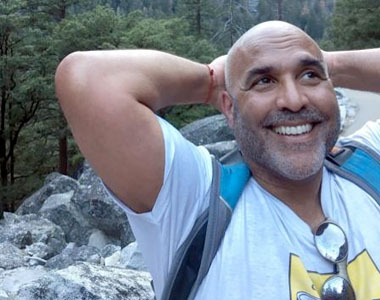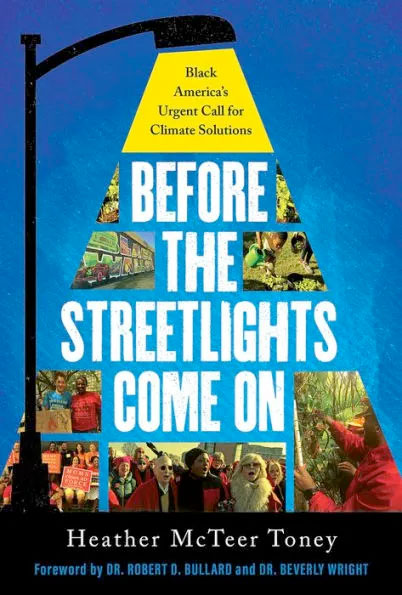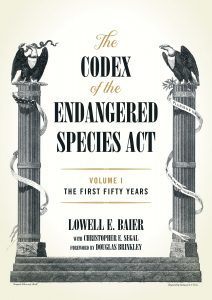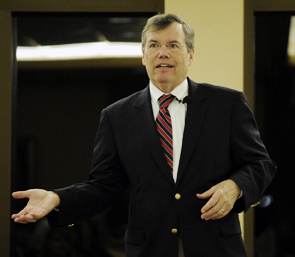 | | | As the semester comes to a close, American colleges continue to face uncertainty as many budgets are slashed, academic freedom and tenure suffer attacks, and major right-wing political figures use campuses as a “woke” punching bag. But what makes headlines often obscures ongoing realities in American life as more colleges and universities teach the realities of climate change, seek solutions to environmental problems, celebrate Earth Day, and work to make their campuses models of sustainability. At Catawba College, a Rachel Carson Council Campus Network member in Salisbury, NC, for instance, innovative Haven solar shelters are spreading across the campus, the first to be installed at any college. This is on top of Catawba’s highly regarded environmental programs and Center for the Environment which is nestled amidst the 189-acre Fred Stanback, Jr. Ecological Preserve. Or take a broader new initiative “This is Planet Ed.” It is designed to encourage, support and accelerate education’s growing progress on climate action at every level. Within its overall campaign, “This is Planet Ed” has a new Task Force focused on higher ed that is co-chaired by Dr. Kim Hunter Reed, Commissioner of Higher Education for Louisiana, and Dr. Mildred Garcia, President of the American Association of State Colleges and Universities. The Task Force draws together twenty members representing leaders across higher education, climate, students, philanthropy, and more. Even in the dismal world of attacks on colleges and universities, there are signs of hope. While Florida’s campus presidents remained silent in the face of Gov. Ron DeSantis’s retrograde moves, yet another new initiative to fight back has emerged, headed by former college presidents and chancellors organized by PEN America. Called “Champions of Higher Education,” the group contains well-known leaders like Freeman Hrabowski, former President of UMBC, and Patricia Okker who was fired as President of the New College of Florida by its new Board packed by Gov. DeSantis. In the world on campus beneath the polarized headlines, Elizabeth Aries has returned with a new book that follows up on her pioneering look in 2005 at the effects of affirmative action. In The Impact of College Diversity: Struggle and Success at Age 30 (Temple University Press) Aries reinterviewed the students from her first book to see how affirmative action and diversity has shaped them nearly a decade later. Overall, the results are encouraging and show that diversity, equity and inclusion at college leads to success and engagement later on.  But early success does not guarantee later advantages for people of color, or for organizations led by them. A study from the Yale School of the Environment examined nearly $5 billion in grants awarded by 220 foundations in 35 states and found that several of the largest mainstream environmental organizations received more funding individually than did all the environmental justice organizations combined. Aware of such continuing racial disparities, Yale’s Center for Environmental Justice a joint effort of the Yale School of the Environment, the Yale Law School, and other offices on campus, has chosen as it inaugural Executive Director, Michel Gelobter. Gelobter has been active in environmental justice since, as a youth, he was involved in the earliest days of the movement in Warren County, North Carolina. But early success does not guarantee later advantages for people of color, or for organizations led by them. A study from the Yale School of the Environment examined nearly $5 billion in grants awarded by 220 foundations in 35 states and found that several of the largest mainstream environmental organizations received more funding individually than did all the environmental justice organizations combined. Aware of such continuing racial disparities, Yale’s Center for Environmental Justice a joint effort of the Yale School of the Environment, the Yale Law School, and other offices on campus, has chosen as it inaugural Executive Director, Michel Gelobter. Gelobter has been active in environmental justice since, as a youth, he was involved in the earliest days of the movement in Warren County, North Carolina. Years after the first Earth Day in 1970, campuses are marking, celebrating and acting on climate change and environmental justice as this year’s theme was “Invest in Our Planet.” The Rachel Carson Council brought its members to the national gathering in Washington, DC, but also headed to nearby campuses throughout Earth Week, including UMBC in Catonsville, MD and Drexel University in Philadelphia which became the RCC’s 65th member of our RCC Campus Network. Meanwhile, RCC Fellows continue to speak out with articles and Op-eds, including a powerful essay on gun violence by RCC Fellow Aaditi Lele of Vanderbilt in the widely read Teen Vogue, and a piece on environmental justice by RCC Fellow Callie Lambard of Susquehanna University that was published in the Daily Item of Pennsylvania. Now that the 2022-23 cohort of RCC Fellows is completing its work, we shall soon be announcing those selected for the 2023-24 cohort of national RCC Fellows and welcoming ten new RCC Stanback Fellows (nine from Duke and one from Yale) who will be working with us in Washington this summer. That is reason enough for hope as the very best of students nationwide dedicate themselves to environmental justice and democracy. — Bob Musil, President & CEO and Mackenzie Bodman, Associate Director, Civic and Campus Engagement. | | | | | | | | Catawba College is the First to Add Solar Shelters Catawba College is advancing their efforts to be a model for sustainability by adding five new Haven solar shelters to their Salisbury campus. Two of the Havens arrived on campus last week, which marks the first commercial delivery of the solar shelters in the United States and re-confirms the College’s commitment to a thriving, sustainable future. Students, faculty, staff, and visitors are often found studying, working, eating, and socializing at many outside areas on campus. Now they can do all that with additional space, shade, and shelter. And solar power. | | | | | | | | Aspen Institute Launches Effort to Support Higher Ed's Role in Climate Action The Aspen Institute’s This Is Planet Ed initiative has launched its Higher Ed Climate Action, which will aim to accelerate higher education’s progress on climate action. “Colleges and universities are anchor institutions that serve as community hubs, prepare the next generation’s workforce, produce vital research, and support students in facing our most pressing challenges,” said Dr. John B. King, Jr., co-chair of This Is Planet Ed and chancellor of the State University of New York (SUNY). | | | | | | | | Where Does the Money Go in Environmental Grantmaking? A new study by the Justice, Equity, Diversity, and Sustainability Initiative (JEDSI) at the Yale School of the Environment examined nearly $5 billion in grants awarded by 220 foundations in 35 states and found that several of the largest mainstream environmental organizations received more funding individually than did all the environmental justice organizations combined. | | | | | | | | Professor Among Growing Number of Women In STEM Dr. Carresse Gerald knew before she was in kindergarten that she wanted to be a veterinarian. “I love animals and loved to learn about them. I watched National Geographic and Animal Planet often,” the Winston-Salem native told Coastal Review. “I especially enjoyed learning about exotic animals like Komodo dragons. So, it made sense for me to want to become a vet. My grandfather also had horses and I figured I could come home and take care of them.” | | | | | | | | RCC on Campus for Earth Day The Rachel Carson Council (RCC) ventured out of its office during Earth Week to attend near-by campus Earth Day events. Campuses all over the U.S. sponsor Earth Day events to engage students, faculty, and surrounding communities in environmental efforts. Closer to Washington, The University of Maryland – Baltimore County (UMBC) in Catonsville, MD, with over 10,000 students, and Drexel University in Philadelphia, with over 25,000, both hold extensive events where environmental organizations are invited to participate. | | | | | | | | Viewpoint: Students, Faculty Marked First Earth Day The idea of engagement in environmental issues caught on with students and faculty on campuses throughout the country, and UND was no exception. The first Earth Day was proposed by Wisconsin Sen. Gaylord Nelson, who suggested the idea as a nationwide environmental teach-in to be held April 22, 1970. When 20 million people turned out on the streets that day, it set a mark and it remains the largest single-day protest in U.S history. | | | | | | | | | | How to Live More Sustainably in 2023 Mike Piehler, Carolina’s chief sustainability officer, shares simple steps to go green and reduce your environmental impact in 2023. It’s possible to go green even when surrounded by Carolina blue. UNC Institute for the Environment Director Mike Piehler is an expert on how human activity affects natural systems and is helping the University be more green as Carolina’s chief sustainability officer. He’s also dedicated to helping Tar Heels find ways to make a difference on their own. | | | | | | | | ‘The Impact of College Diversity’ Author who first explored the impact of diversity on undergraduates in 2005 returns to her subjects as they reach 30 and finds new evidence of success of affirmative action. In 2005, Elizabeth Aries started work on a book that chronicled what 58 first-year Amherst College students—Black and white, affluent and lower income—learned from racial and class diversity. Her study, which references other groups but doesn’t focus on them, emphasized the value of campus diversity at elite colleges. | | | | | | | | The Path to Big Impact: A Q&A with Inaugural Yale Center for Environmental Justice Executive Director Michel Gelobter The modern environmental justice movement in the United States traces its roots back to the 1980s when protests over a toxic waste landfill in largely rural, Black, and low-income Warren County, North Carolina, garnered national media attention and served as the catalyst for research finding that race was often the single most important factor in predicting where toxic waste facilities were located in the U.S. | | | | | | | | Ohio Bill Requires Higher Ed Faculty to Teach "Both Sides" of Climate Change An Ohio higher education bill currently making its way through the state legislature could prohibit Ohio higher education instructors from teaching climate science without also including false or misleading counterpoints, Ohio Capital Journal reported. SB 83, the Higher Education Enhancement Act, sponsored by State Senator Jerry Cirino aims to label classroom speech on certain topics – including climate change, abortion, immigration, and diversity, equity, and inclusion (DEI) – as controversial and regulate the teaching of them accordingly. | | | | | | | | The Silence of Florida’s Presidents As Florida’s Republican governor, Ron DeSantis, seeks to enact sweeping reforms to dramatically reshape higher education in the Sunshine State, students and faculty alike have protested legislation that would ban teaching certain topics, limit institutional authority and undermine tenure protections. But one group has remained conspicuously silent: Florida’s college presidents. | | | | | | | | Educators and Advocates Critique Ohio Anti-DEI Bill In the wave of anti-DEI state legislation that has crested over America this year (29 bills in 17 states), the recently introduced Ohio Higher Education Enhancement Act (SB 83) is uniquely comprehensive. “What a Frankenstein’s monster of a bill,” said Jeremy C. Young, senior manager of free expression and education at PEN America, a free speech organization. “This is the longest and most complex educational gag order I’ve ever seen; it is also one of the two or three most censorious.” | | | | | | | | Ex-Presidents for Academic Freedom PEN America has convened a group of 100-plus former college presidents to push back on threats to academic freedom as higher education remains a frequent target for politicians. Caught in the crossfire of a culture war, sitting college presidents are often reluctant to speak out on legislative proposals that threaten tenure, academic freedom and diversity, equity, and inclusion efforts on their campuses. | | | | | | | | North Carolina Hogs in Ecuador? I arrived on campus a few days late, halfway through my pack of antibiotics, and jetlagged the morning after my flight to Quito, Ecuador. Universidad de San Francisco de Quito welcomed me nonetheless with open arms. As I navigated the well-manicured gardens and river that runs through the Cumbaya campus, I pulled off my mask to soak up the smells of a country foreign to me. I was there to study Environmental Anthropology – a subfield of anthropology that focuses on the relationship between humans and their environment. | | | | | | | | Call for ESG Instead of Divestment? In the face of a conflict of interest complaint, student pressure, and a legal complaint filed with the Tennessee Attorney General, Chancellor Daniel Diermeier of Vanderbilt University has resolutely maintained his stance of “principled neutrality” on divestment. According to his estimation, and many other university administrators across the country, divestment represents an activist position. It is perceived as a positive action a university takes, making a stand for a particular political position which may violate the ethical requirements of an ostensibly nonpartisan school. | | | | | | | | Covenant School Shooting: Reporting on Gun Violence As a Student Journalist In this op-ed, a Vanderbilt University student writes about the experience of covering the nearby Covenant School shooting. The helicopters circle overhead and my chest tightens. Sirens ring closer and closer, my uneasiness amplifying the shrill panic. There is no time to freeze. No time for the imminent anxiety attack. Breathe. I whip out my phone, tightening my grip, and type, “BREAKING: Shooting reported at Covenant School…”. | | | | | | | | Intersectional Environmentalism Sometimes the problems we’re facing feel insurmountable. They layer on top of one another in a dizzying stack: climate change, racial inequality, unemployment, sexism. The thing is, all of these issues are interconnected. If we begin to solve one, we start to have solutions for the others. That’s the power of taking action on climate change. Vulnerable communities are often hit the hardest, showing us the intersection between climate change and social justice. | | | | | | | | | | Before the Streetlights Come On:
Black America's Urgent Call for Climate Solutions  Climate change. Two words that are quickly becoming the clarion call to action in the twenty-first century. It is a voter issue, an economy driver, and a defining dynamic for the foreseeable future. Yet, in Black communities, climate change is seen as less urgent when compared to other pressing issues, including police brutality, gun violence, job security, food insecurity, and the blatant racism faced daily around the country. Climate change. Two words that are quickly becoming the clarion call to action in the twenty-first century. It is a voter issue, an economy driver, and a defining dynamic for the foreseeable future. Yet, in Black communities, climate change is seen as less urgent when compared to other pressing issues, including police brutality, gun violence, job security, food insecurity, and the blatant racism faced daily around the country.
However, with Black Americans disproportionately impacted by the effects of climate change—making up 13 percent of the US population but breathing 40 percent dirtier air and being twice as likely to be hospitalized or die from climate-related health problems than white counterparts—climate change is a central issue of racial justice and affects every aspect of life for Black communities.
In Before the Streetlights Come On, climate activist Heather McTeer Toney insists that those most affected by climate change are best suited to lead the movement for climate justice. McTeer Toney brings her background in politics, community advocacy, and leadership in environmental justice to this revolutionary exploration of why and how Black Americans are uniquely qualified to lead national and global conversations around systems of racial disparity and solutions to the climate crisis. As our country delves deeper into solutions for systemic racism and past injustices, she argues, the environmental movement must shift direction and leadership toward those most affected and most affecting change: Black communities.  | | | | | | Book Chronicles Endangered Species Act’s First 50 years  On Feb. 21, 1918, the world’s last Carolina parakeet died at the Cincinnati Zoo in Ohio. The bird, named Incas, was preceded in death by his mate called Lady Jane. On Feb. 21, 1918, the world’s last Carolina parakeet died at the Cincinnati Zoo in Ohio. The bird, named Incas, was preceded in death by his mate called Lady Jane.
At one time, the Carolina parakeet had a range that spanned the Midwest and the Southeastern Seaboard — including coastal North Carolina. Not actually a true parakeet but a parrot, its plumage was bright green with yellow and red on its head, making it quite a sight when these birds would fly together in flocks from tree to tree.
It was also what made their feathers such desirable adornments for women’s hats in the late 1800s and early 1900s. Called the “plume boom,” different species of colorful birds were hunted at unsustainable rates, contributing to drive some like the Carolina parakeet, the United States’ only native parrot, to extinction.
The plume boom led to the passing of the Migratory Bird Treaty Act of 1918, one of the United States’ first federal laws geared toward conservation. It was part of a growing awareness that wildlife was not an unlimited resource. Acts like this paved the way for even more groundbreaking legislation, such as the 1973 Endangered Species Act, which turns 50 years old this year. The Codex of the Endangered Species Act: Volume 1, The First Fifty Years is a more-than-700-page volume detailing the context for and first 50 years of one of the most pivotal pieces of wildlife legislation in the country’s history.  | | | | | | Plan Your 2023 Campus Events with RCC now! RCC prides itself on its National Campus Network of 65 colleges and universities. We are working to engage faculty members, students, and administrators in our efforts for a more just and sustainable world. With our growing fellowship program, our presence on campuses across the country has never been greater. Contact RCC today to bring our staff to your campus for lectures, workshops, or meetings to help find the best ways to engage your faculty and students in the efforts against climate change, environmental justice, and the work of the Rachel Carson Council. Campus Visits with RCC President, Dr. Robert K. Musil  RCC President & CEO, Dr. Robert K. Musil, a national leader in climate change, environmental justice and health is again available to book for in-person campus speaking events! Musil has been called “informative, challenging and inspirational all at once.” He is “motivational” with “intellectual depth” and “extraordinary impact.” RCC President & CEO, Dr. Robert K. Musil, a national leader in climate change, environmental justice and health is again available to book for in-person campus speaking events! Musil has been called “informative, challenging and inspirational all at once.” He is “motivational” with “intellectual depth” and “extraordinary impact.”
Dr. Musil is available for campus lectures and visits involving classes, meetings with campus and community groups, consultations with faculty and administrators, or for Earth Day, Commencement, and other special events. Stays range from one to three days. Reduced fees are in place for 2023-2024 and can be designed to meet reduced budgets. To arrange a campus visit with Dr. Musil, contact the RCC President’s Office at office@rachelcarsoncouncil.org or call 301-214-2400. The RCC also offers talks, classes, and workshops on student engagement, activism, sustainability, and the RCC Fellowship program with, Associate Director of Civic and Campus Engagement, Mackenzie Bodman, Associate Director of Climate Justice, Bella Jaramillo, Associate Director of Communications, Claudia Steiner, Director of Policy and Programs, Maya Cohn. To arrange, contact Associate Director of Civic and Campus Engagement, Mackenzie Bodman. | | | | | | | |  The Rachel Carson Council Depends on Tax-deductible Gifts From Concerned Individuals Like You. Please Help If You can. The Rachel Carson Council Depends on Tax-deductible Gifts From Concerned Individuals Like You. Please Help If You can. | | | |  Sign Up Here to Receive the RCC E-News and Other RCC Newsletters, Information and Alerts. Sign Up Here to Receive the RCC E-News and Other RCC Newsletters, Information and Alerts. | | | | | | | | | | | |